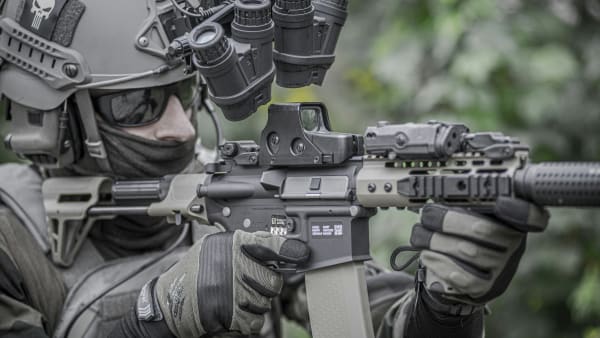Transitioning from a military career into the civilian job market can be a daunting prospect. But for those who've served, it's important to remember that the skills and experience you've gained during your time in the service can provide a strong foundation for a successful career in various sectors. If you're a veteran looking for job advice, we have a series of veteran military job tips that can assist you in your transition.
Start with Self-Assessment
To identify jobs that may suit your skill set, conduct a thorough assessment of your military experience. Key points to consider include:
- What were your primary responsibilities?
- Which training programs and certifications have you completed?
- What skills have you acquired?
Translate these points into civilian terminology. For instance, instead of saying "squad leader," you might say "team manager." This makes your experience more relatable to hiring managers.
Translate Your Skills
Think about how the skills you gained during your military career translate to civilian jobs. For instance:
- Leadership: Veterans often have exceptional leadership skills as they are trained to lead by inspiration, by setting high standards, and by example.
- Teamwork: Military service requires close cooperation between team members, meaning veterans typically excel in team-oriented environments.
- Problem-Solving: Military training instills adaptability and the capacity to solve complex problems quickly and efficiently.
- Discipline and Work Ethic: Veterans are known for their discipline, responsibility, and strong work ethic.
Networking and LinkedIn
Networking is key in the civilian job market, especially for veterans. The military has a powerful alumni network that you should leverage in your job search. Make use of platforms like LinkedIn to connect with fellow veterans, join military groups, and interact with potential employers.
Make sure your LinkedIn profile is polished and updated with your civilian-optimized experience and skills. An active LinkedIn profile can go a long way toward landing interviews and job opportunities.
Tailored Resumes and Cover Letters
Instead of distributing the same resume to multiple companies, take the time to tailor each one. Research the company, understand their values, and emphasize how your experience and skills align with what they're looking for.
The same applies to cover letters – use them as an opportunity to highlight relevant skills and experiences, make connections between your military duties and the job requirements, and demonstrate interest in the company.
Preparation for Interviews
A job interview is where you have the chance to make a lasting impression. Preparation is crucial. Research common interview questions and rehearse your answers.
During the interview:
- Be ready to expand on your resume.
- Be clear about how your military skills translate into the job role.
- Ask informed questions about the company or role.
Seek Professional Help
There are numerous organizations that provide free career advice for veterans. Look into these organizations—they often provide resources, counseling, job boards, and employment fairs for transitioning military personnel.
Maintain Optimism and Patience
Lastly, remember that this transition won't happen overnight. Be patient and remain flexible—you may need to consider jobs outside your initial expectations. Maintain a positive outlook and recognize that each application is a step towards your new career.
Transitioning from a military career to a civilian one presents its unique challenges, but veterans possess an array of valuable skills and experiences that are highly sought after in the job market. By following a strategic job search approach as outlined by these veteran military job tips, you're well on your way to landing a fulfilling civilian job.




